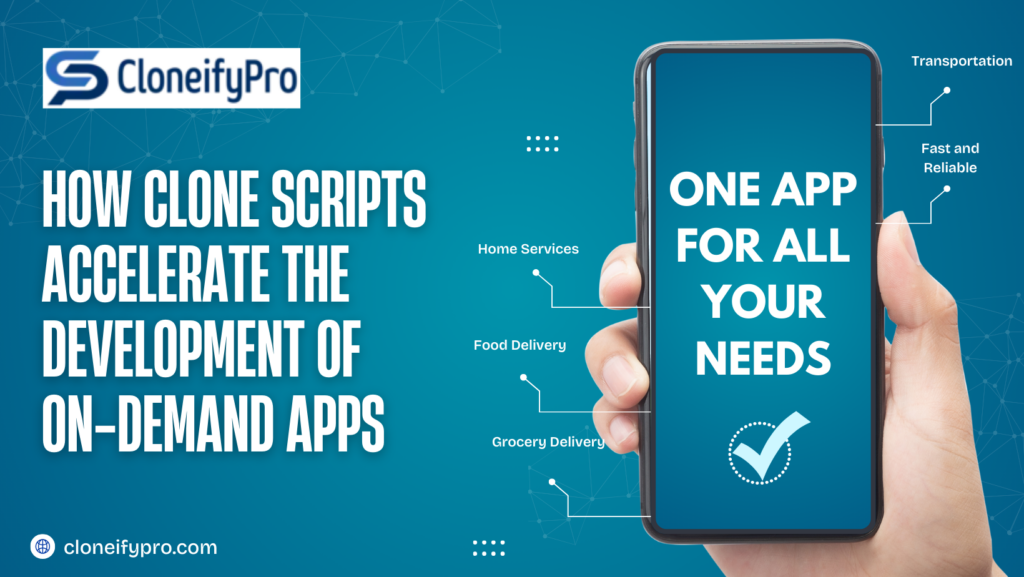
Innovation and speed are essential for success in the fast-paced digital world of today. There is fierce competition for On-Demand app development companies aiming to release on-demand apps, and speed of delivery can make all the difference. Here comes clone scripts, a ground-breaking way to speed up multi-service app development services without sacrificing customization or quality. But how exactly do clone scripts work, and why are they a game-changer for startups and enterprises? Let’s dive in.
Clone scripts are pre-made software programs that mimic the essential features of popular apps like Instacart, Uber, and Airbnb. They act as a pre-made framework that programmers can alter to suit certain company requirements.
Clone scripts offer a strong basis, significantly cutting down on development time and expenses, as opposed to creating an app from scratch, which can take months or even years.
The tech industry doesn’t wait for anyone. Businesses can quickly deploy their on-demand apps with clone scripts, which can reduce development time by up to 50%. Instead of creating the app’s essential elements from scratch, developers can concentrate on honing special features when a pre-built framework is in place.
Depending on the intricacy, the cost of developing a custom app might range from $50,000 to $200,000 or more. However, clone scripts are a fraction of this price. Instead, startups and small enterprises might use their funds for customer acquisition, marketing, or operational expansion.
Successful multi-service app development services that have previously attracted users’ attention serve as the foundation for clone scripts. Businesses can lower their risk of failure and learn about consumer preferences and industry best practices by utilizing a tested model.
How Clone Scripts Fit the On-Demand Economy
Convenience is key to the on-demand economy, which puts services at consumers’ fingertips. Clone scripts enable companies to swiftly and successfully enter this profitable market, which includes ride-hailing and food delivery.
Scalability is a consideration in the design of clone scripts. You may incorporate more features as your company expands, such as blockchain-based security, AI-driven personalization, and sophisticated analytics.
Although clone scripts duplicate essential features, they are not inflexible. To fit a brand’s distinct vision, developers might alter the connectors, features, and style.
The development of on-demand applications development companies has changed as a result of clone scripts. They enable companies to compete in a highly dynamic market by cutting expenses, saving time, and offering tried-and-true frameworks. Utilizing clone scripts can provide you with a substantial advantage, regardless of your level of experience as an entrepreneur or business.
Clone scripts are excellent at both speed and inventiveness, which are key components of the future of on-demand programs. Are you prepared to create the upcoming popular app? The options are endless with the correct clone script.
Investigate top-notch clone scripts right now to start building a profitable on-demand application!